#the curse of bigness
Text
Let’s start with how hard it is to not use Google. Google spends fifty billion dollars per year on deals to be the default search engine for Apple, Samsung, Firefox and elsewhere. Google spends a whole-ass Twitter, every single year, just to make sure you never accidentally try another search engine.
Small wonder there are so few search alternatives — and small wonder that the most promising ones are suffocated for lack of market oxygen.
Google Search is as big as it could possibly be. The sub-ten-percent of the search market that Google doesn’t own isn’t ever going to voluntarily come into the Google fold. Those brave iconoclasts are intimately familiar with Google Search and have had to override one or more defaults in order to get shut of it. They aren’t customers-in-waiting who just need a little more persuading.
That means that Google Search can’t grow by adding new customers. It can only grow by squeezing its existing customers harder.
For Google Search to increase its profits, it must shift value from web publishers, advertisers and/or users to itself.
/The only way for Google Search to grow is to make itself worse./
- Microincentives and Enshittification: How the Curse of Bigness wrecked Google Search
#machiavelli-as-a-service#search#google search#the curse of bigness#monopoly#google#microincentives#incentives matter
986 notes
·
View notes
Text

I love this thing,,,
Non animated version:

(Colors are brighter due to gif compression!)
#cursed cat alastor#I genuinely have no idea if this meme is big on tumblr at all#hazbin hotel#hazbin hotel fanart#my art#hazbin hotel alastor#alastor#gif#spaghetti posting
12K notes
·
View notes
Text


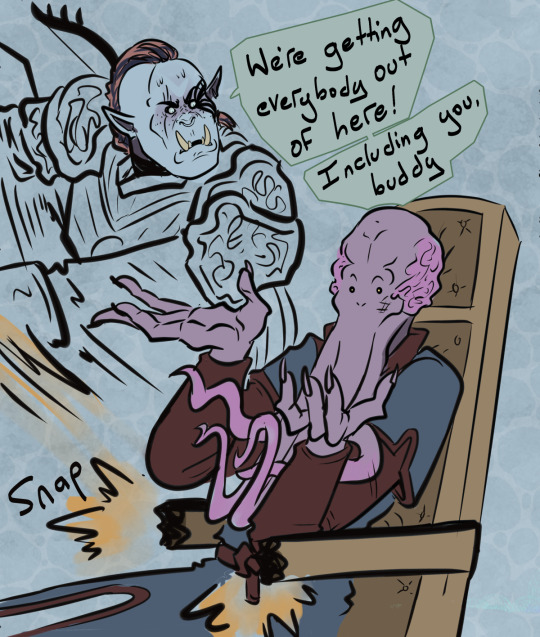
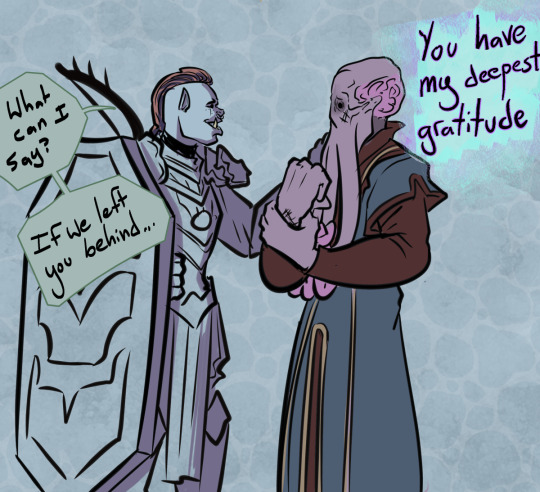

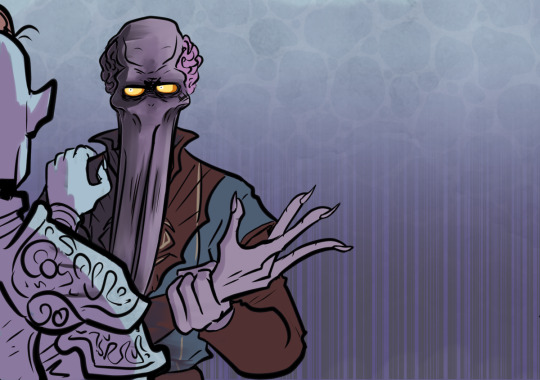
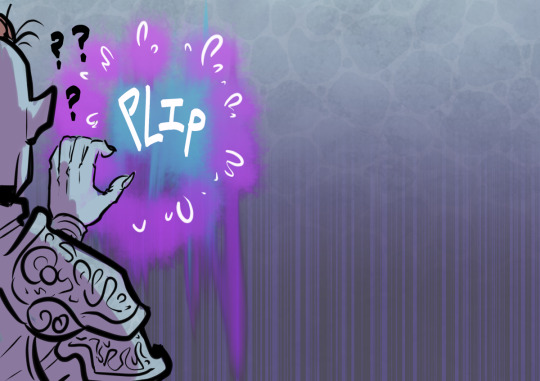
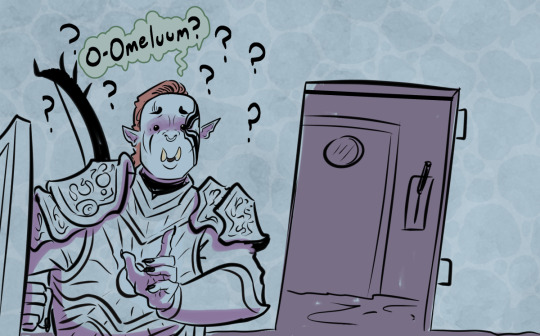


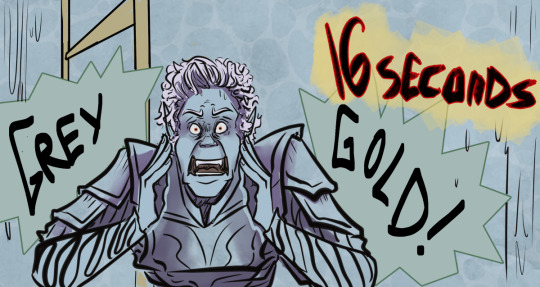



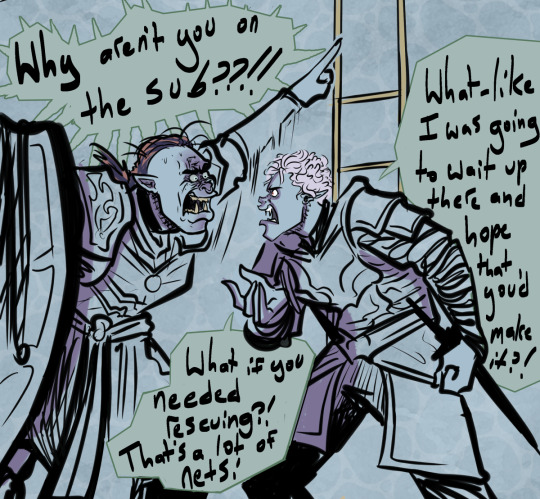


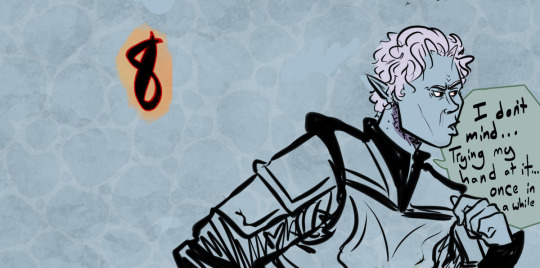



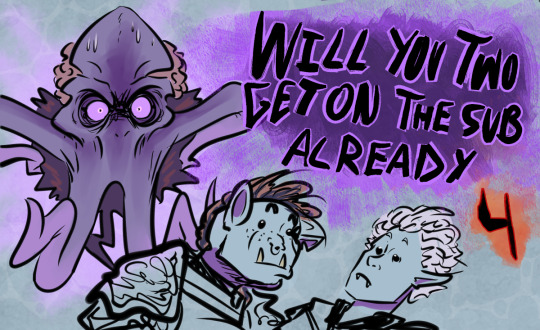
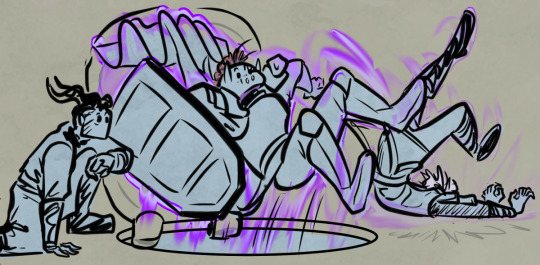
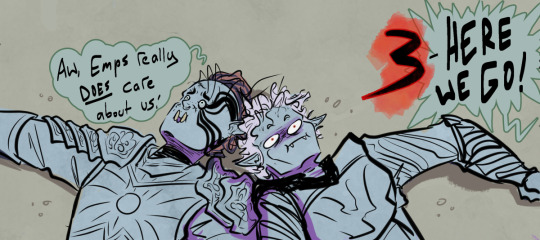

I love Omeluum. But I don't think Omeluum likes Greygold.
The one time everything was going smoothly in the iron throne, was the one time Omuluum ditched teleported without Greygold i.e I fucked up. Do you know. Do you know how many nets Greygold had to dodge while heading back? Too. Too many.
Thankfully! Astarion, last lad around, stuck by the ladder just in casies. And, just in casies, Astarion continued to stay there while GG caught their breath by the ladder. Bat buddy wanted to make sure they both left at the same time. Heart-warming in retrospect!
Never heard squid buddy convey such- unrestrained choked up panic over Greygold's well-being. I was touched y'all.... Until I realized there's probably more than one reason why The Emperor would be so concerned, hueeeeh
#bg3 spoilers#bg3#baldur's gate 3#astarion#omeluum#bg3 emperor#the emperor bg3#greygold#bg3 fanart#bg3 comic#the emperor cursing is funny because reasons#Greygold's superpower is bringing out the best or worst in mindflayers#A tribute to calling Omeluum Omulette for the longest of times ahahaha#Bat boy is becoming a bat man ohohoho#you know because he's such a big fan of the dark. the dark kn-*shot*
1K notes
·
View notes
Text

past ties
#leopardfoot#warrior cats#p2 of the cats named after the ancient clans are cursed with bad luck HC#bluestars prophecy#pinestar#tigerstar#tigerclaw#illustration#big cat#leopard#harriertail
989 notes
·
View notes
Text


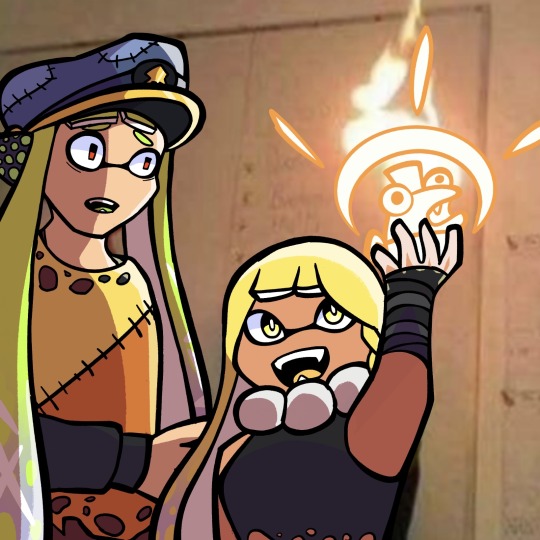


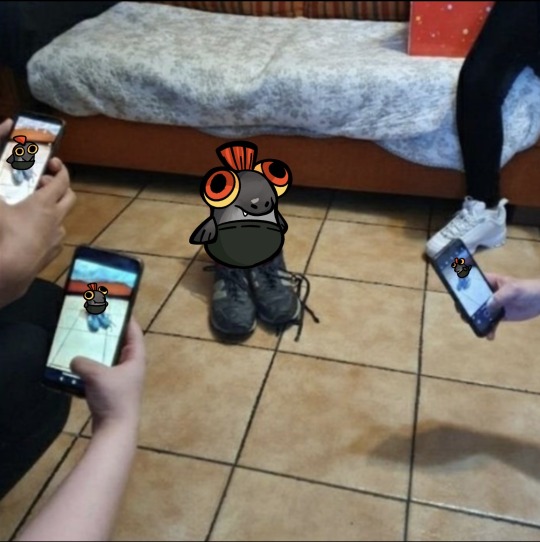
Uuuuuhhhh I dunno
#splatoon#splatoon 3#agent 3#salmon run#small fry#deepcut#shiver#Frye#big man#nintendo#cursed image#cursed images#my art#digital art#my artwork
12K notes
·
View notes
Note
I’m sorry but . Your butch Celia is fucking everything to me I think . She’s so <3 the everything .

[ID: Digital drawings of Celia Ripley from The Magnus Protocol on a gray background. She is a slim, muscular Korean woman with pale skin, short black hair, dark brown eyes, dimples, body hair, and eyebags. In all drawings, she is wearing black rectangular glasses, and snakebite piercings, industrials, and x-shaped stud earrings, all gold. The top two drawings are of her in casual wear, with a light green t-shirt with the short sleeves cuffed, purple cuffed jeans, light green socks, dark green Doc Marten boots with gold laces, and a green belt with gold hardware. The upper left drawing is of her from the shoulders up, holding a purple mug with both hands and taking a sip while looking up, and to the right is a full-body of her sitting holding the mug with one hand and leaning slightly on the other, smiling at the viewer. There is a note that says "casual mode" pointing to both of them. The last drawing on the bottom left is much smaller and is of her wearing a light green button down, dark green trousers, light green socks, dress shoes, a belt, wrist cuffs, and shoulder holsters, all purple, and a black necktie. She is kneeling and aiming a golden pistol with a serious expression, and she has a second gold pistol in her other holster. This drawing is labelled as "spy!Celia theory/au" and "(I'm gay let me have this)" end ID]
~~~~
never apologize she is everything to me also <3
#fg's art#the magnus protocol#tmagp#celia ripley#fg's answers#asks#cursing#as you can see i'm normal about her#had a bit of a moment with that big casual one's arm if you couldn't tell. and then i had to give the rest of them the Vein. so yeah <3#also yeah i'd seen some theories about celia being a spy and i don't really buy into it yet#but it put in mind the image of ms ripley with a Gun so. yeah <3
658 notes
·
View notes
Text
"Inej is the mom fri—" *loud incorrect buzzer noise* Wrong. You are looking for Matthias Helvar.
#stop projecting mom friend status on Inej just because she's a girl#Inej is the HEART of the group not the CARER of the group#Matthias is the 'born to be a grumpy worrying big brother/mom friend; cursed to be a religious cult escapee' character#look no further than the bit where they kidnapped Alys as proof lmao#six of crows#inej ghafa#matthias helvar
700 notes
·
View notes
Text


the same flame that burns you; birthed you first
p1
#my art#jujutsu kaisen#jjk#gojo satoru#gojo#fanart#jjk fanart#tw body image//#ok i have done an entire two part icarian gojo series...can i rest now...am i free........#I rendered all those birds. only 2 remember tht theyre FALLING and i wanted them BLURRY#my details..#screaming crying throwing up etc#i suffer. this is my curse.#in other words i may b an idiot fr that but ! big fan of my me for the juxtaposition between this piece and the last#cold/unnatural/survival vs burning/truth/decay#dare i say i cooked#6 birds to be exact i cooked 6 birds sorry
659 notes
·
View notes
Text


the twins and their jelly genes 💕💢
((from the newest chap of my fic! ao3/wattpad))
#just 2 more chapters to go and the fic will be done🥲#part of me is looking forward to having it done and under my belt BUT ALSO BIG SAD..... ill still keep drawing them tho#and will probs write some oneshots/a small series about their adult life as curse breakers and will also defs DRAW more of it#hogwarts legacy#sebastian sallow#ominis gaunt#sebastian sallow x mc#sebastian sallow x oc#anne sallow#ominis#ominis x anne#hogwarts legacy sebastian#hogwarts legacy ominis#clora clemons#choccyart
855 notes
·
View notes
Text


he's not even eepy, he's Sleep-Deprived SDHFGHFSD
#severus snape#young snape#yonal linx#dinxdraws#cranky sev is more sarcastic and snappy than usual#bro is Tired#the curse of having a big brain is you cannot stop Thinking
574 notes
·
View notes
Text
Big Tech disrupted disruption
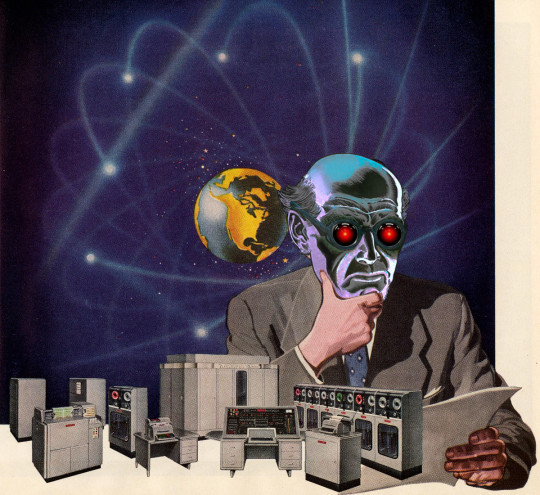
If you'd like an essay-formatted version of this post to read or share, here's a link to it on pluralistic.net, my surveillance-free, ad-free, tracker-free blog:
https://pluralistic.net/2024/02/08/permanent-overlords/#republicans-want-to-defund-the-police

Before "disruption" turned into a punchline, it was a genuinely exciting idea. Using technology, we could connect people to one another and allow them to collaborate, share, and cooperate to make great things happen.
It's easy (and valid) to dismiss the "disruption" of Uber, which "disrupted" taxis and transit by losing $31b worth of Saudi royal money in a bid to collapse the world's rival transportation system, while quietly promising its investors that it would someday have pricing power as a monopoly, and would attain profit through price-gouging and wage-theft.
Uber's disruption story was wreathed in bullshit: lies about the "independence" of its drivers, about the imminence of self-driving taxis, about the impact that replacing buses and subways with millions of circling, empty cars would have on traffic congestion. There were and are plenty of problems with traditional taxis and transit, but Uber magnified these problems, under cover of "disrupting" them away.
But there are other feats of high-tech disruption that were and are genuinely transformative – Wikipedia, GNU/Linux, RSS, and more. These disruptive technologies altered the balance of power between powerful institutions and the businesses, communities and individuals they dominated, in ways that have proven both beneficial and durable.
When we speak of commercial disruption today, we usually mean a tech company disrupting a non-tech company. Tinder disrupts singles bars. Netflix disrupts Blockbuster. Airbnb disrupts Marriott.
But the history of "disruption" features far more examples of tech companies disrupting other tech companies: DEC disrupts IBM. Netscape disrupts Microsoft. Google disrupts Yahoo. Nokia disrupts Kodak, sure – but then Apple disrupts Nokia. It's only natural that the businesses most vulnerable to digital disruption are other digital businesses.
And yet…disruption is nowhere to be seen when it comes to the tech sector itself. Five giant companies have been running the show for more than a decade. A couple of these companies (Apple, Microsoft) are Gen-Xers, having been born in the 70s, then there's a couple of Millennials (Amazon, Google), and that one Gen-Z kid (Facebook). Big Tech shows no sign of being disrupted, despite the continuous enshittification of their core products and services. How can this be? Has Big Tech disrupted disruption itself?
That's the contention of "Coopting Disruption," a new paper from two law profs: Mark Lemley (Stanford) and Matthew Wansley (Yeshiva U):
https://papers.ssrn.com/sol3/papers.cfm?abstract_id=4713845
The paper opens with a review of the literature on disruption. Big companies have some major advantages: they've got people and infrastructure they can leverage to bring new products to market more cheaply than startups. They've got existing relationships with suppliers, distributors and customers. People trust them.
Diversified, monopolistic companies are also able to capture "involuntary spillovers": when Google spends money on AI for image recognition, it can improve Google Photos, YouTube, Android, Search, Maps and many other products. A startup with just one product can't capitalize on these spillovers in the same way, so it doesn't have the same incentives to spend big on R&D.
Finally, big companies have access to cheap money. They get better credit terms from lenders, they can float bonds, they can tap the public markets, or just spend their own profits on R&D. They can also afford to take a long view, because they're not tied to VCs whose funds turn over every 5-10 years. Big companies get cheap money, play a long game, pay less to innovate and get more out of innovation.
But those advantages are swamped by the disadvantages of incumbency, all the various curses of bigness. Take Arrow's "replacement effect": new companies that compete with incumbents drive down the incumbents' prices and tempt their customers away. But an incumbent that buys a disruptive new company can just shut it down, and whittle down its ideas to "sustaining innovation" (small improvements to existing products), killing "disruptive innovation" (major changes that make the existing products obsolete).
Arrow's Replacement Effect also comes into play before a new product even exists. An incumbent that allows a rival to do R&D that would eventually disrupt its product is at risk; but if the incumbent buys this pre-product, R&D-heavy startup, it can turn the research to sustaining innovation and defund any disruptive innovation.
Arrow asks us to look at the innovation question from the point of view of the company as a whole. Clayton Christensen's "Innovator's Dilemma" looks at the motivations of individual decision-makers in large, successful companies. These individuals don't want to disrupt their own business, because that will render some part of their own company obsolete (perhaps their own division!). They also don't want to radically change their customers' businesses, because those customers would also face negative effects from disruption.
A startup, by contrast, has no existing successful divisions and no giant customers to safeguard. They have nothing to lose and everything to gain from disruption. Where a large company has no way for individual employees to initiate major changes in corporate strategy, a startup has fewer hops between employees and management. What's more, a startup that rewards an employee's good idea with a stock-grant ties that employee's future finances to the outcome of that idea – while a giant corporation's stock bonuses are only incidentally tied to the ideas of any individual worker.
Big companies are where good ideas go to die. If a big company passes on its employees' cool, disruptive ideas, that's the end of the story for that idea. But even if 100 VCs pass on a startup's cool idea and only one VC funds it, the startup still gets to pursue that idea. In startup land, a good idea gets lots of chances – in a big company, it only gets one.
Given how innately disruptable tech companies are, given how hard it is for big companies to innovate, and given how little innovation we've gotten from Big Tech, how is it that the tech giants haven't been disrupted?
The authors propose a four-step program for the would-be Tech Baron hoping to defend their turf from disruption.
First, gather information about startups that might develop disruptive technologies and steer them away from competing with you, by investing in them or partnering with them.
Second, cut off any would-be competitor's supply of resources they need to develop a disruptive product that challenges your own.
Third, convince the government to pass regulations that big, established companies can comply with but that are business-killing challenges for small competitors.
Finally, buy up any company that resists your steering, succeeds despite your resource war, and escapes the compliance moats of regulation that favors incumbents.
Then: kill those companies.
The authors proceed to show that all four tactics are in play today. Big Tech companies operate their own VC funds, which means they get a look at every promising company in the field, even if they don't want to invest in them. Big Tech companies are also awash in money and their "rival" VCs know it, and so financial VCs and Big Tech collude to fund potential disruptors and then sell them to Big Tech companies as "aqui-hires" that see the disruption neutralized.
On resources, the authors focus on data, and how companies like Facebook have explicit policies of only permitting companies they don't see as potential disruptors to access Facebook data. They reproduce internal Facebook strategy memos that divide potential platform users into "existing competitors, possible future competitors, [or] developers that we have alignment with on business models." These categories allow Facebook to decide which companies are capable of developing disruptive products and which ones aren't. For example, Amazon – which doesn't compete with Facebook – is allowed to access FB data to target shoppers. But Messageme, a startup, was cut off from Facebook as soon as management perceived them as a future rival. Ironically – but unsurprisingly – Facebook spins these policies as pro-privacy, not anti-competitive.
These data policies cast a long shadow. They don't just block existing companies from accessing the data they need to pursue disruptive offerings – they also "send a message" to would-be founders and investors, letting them know that if they try to disrupt a tech giant, they will have their market oxygen cut off before they can draw breath. The only way to build a product that challenges Facebook is as Facebook's partner, under Facebook's direction, with Facebook's veto.
Next, regulation. Starting in 2019, Facebook started publishing full-page newspaper ads calling for regulation. Someone ghost-wrote a Washington Post op-ed under Zuckerberg's byline, arguing the case for more tech regulation. Google, Apple, OpenAI other tech giants have all (selectively) lobbied in favor of many regulations. These rules covered a lot of ground, but they all share a characteristic: complying with them requires huge amounts of money – money that giant tech companies can spare, but potential disruptors lack.
Finally, there's predatory acquisitions. Mark Zuckerberg, working without the benefit of a ghost writer (or in-house counsel to review his statements for actionable intent) has repeatedly confessed to buying companies like Instagram to ensure that they never grow to be competitors. As he told one colleague, "I remember your internal post about how Instagram was our threat and not Google+. You were basically right. The thing about startups though is you can often acquire them.”
All the tech giants are acquisition factories. Every successful Google product, almost without exception, is a product they bought from someone else. By contrast, Google's own internal products typically crash and burn, from G+ to Reader to Google Videos. Apple, meanwhile, buys 90 companies per year – Tim Apple brings home a new company for his shareholders more often than you bring home a bag of groceries for your family. All the Big Tech companies' AI offerings are acquisitions, and Apple has bought more AI companies than any of them.
Big Tech claims to be innovating, but it's really just operationalizing. Any company that threatens to disrupt a tech giant is bought, its products stripped of any really innovative features, and the residue is added to existing products as a "sustaining innovation" – a dot-release feature that has all the innovative disruption of rounding the corners on a new mobile phone.
The authors present three case-studies of tech companies using this four-point strategy to forestall disruption in AI, VR and self-driving cars. I'm not excited about any of these three categories, but it's clear that the tech giants are worried about them, and the authors make a devastating case for these disruptions being disrupted by Big Tech.
What do to about it? If we like (some) disruption, and if Big Tech is enshittifying at speed without facing dethroning-by-disruption, how do we get the dynamism and innovation that gave us the best of tech?
The authors make four suggestions.
First, revive the authorities under existing antitrust law to ban executives from Big Tech companies from serving on the boards of startups. More broadly, kill interlocking boards altogether. Remember, these powers already exist in the lawbooks, so accomplishing this goal means a change in enforcement priorities, not a new act of Congress or rulemaking. What's more, interlocking boards between competing companies are illegal per se, meaning there's no expensive, difficult fact-finding needed to demonstrate that two companies are breaking the law by sharing directors.
Next: create a nondiscrimination policy that requires the largest tech companies that share data with some unaffiliated companies to offer data on the same terms to other companies, except when they are direct competitors. They argue that this rule will keep tech giants from choking off disruptive technologies that make them obsolete (rather than competing with them).
On the subject of regulation and compliance moats, they have less concrete advice. They counsel lawmakers to greet tech giants' demands to be regulated with suspicion, to proceed with caution when they do regulate, and to shape regulation so that it doesn't limit market entry, by keeping in mind the disproportionate burdens regulations put on established giants and small new companies. This is all good advice, but it's more a set of principles than any kind of specific practice, test or procedure.
Finally, they call for increased scrutiny of mergers, including mergers between very large companies and small startups. They argue that existing law (Sec 2 of the Sherman Act and Sec 7 of the Clayton Act) both empower enforcers to block these acquisitions. They admit that the case-law on this is poor, but that just means that enforcers need to start making new case-law.
I like all of these suggestions! We're certainly enjoying a more activist set of regulators, who are more interested in Big Tech, than we've seen in generations.
But they are grossly under-resourced even without giving them additional duties. As Matt Stoller points out, "the DOJ's Antitrust Division has fewer people enforcing anti-monopoly laws in a $24 trillion economy than the Smithsonian Museum has security guards."
https://www.thebignewsletter.com/p/congressional-republicans-to-defund
What's more, Republicans are trying to slash their budgets even further. The American conservative movement has finally located a police force they're eager to defund: the corporate police who defend us all from predatory monopolies.

Image:
Cryteria (modified)
https://commons.wikimedia.org/wiki/File:HAL9000.svg
CC BY 3.0
https://creativecommons.org/licenses/by/3.0/deed.en
#pluralistic#coopting disruption#law and political economy#law#economics#competition#big tech#tech#innovation#acquihires#predatory acquisitions#mergers and acquisitions#disruption#schumpeter#the curse of bigness#clay christensen#josef schumpeter#christensen#enshittiification#business#regulation#scholarship
284 notes
·
View notes
Text
Fabian may be totally against the idea of having siblings but I guarantee you if Gilear and Hallariel ever did have a kid he would love that kid the second he got a chance to hold it
#fig would obviously be the best big sister ever#dimension 20#fantasy high#fantasy high junior year#“all pulp no juice” is cursed and i love it
506 notes
·
View notes
Text

Young Malenia doodles + headcanons
((A.K.A Malenia as Miquella always sees her even after she grew up and became a fierce warrior))
#elden ring#sweet and shy Malenia transforming into a deadly warrior#something something metamorphosis reference#anyway I think that the irony is that Miquella is cursed with eternal youth but actually his big bro genes are so strong that he also#just permanently associates Malenia with her baby self#she’s a grown adult with 5 kids like ‘bye Miq I’m going to war’ and he’s like ‘huh!? what!? you can’t do that you’re twelve!’#Malenia is the baby to him#he’s an old man
648 notes
·
View notes
Note
idk if you've watched any of Jello's ISAT streams but
Odile wearing Jordans

based on that one twitter post
#isat#in stars and time#isat odile#combining the jordans joke with this pose redraw#because I can :)#day 15#man this is cursed#jello's streams are how I got into isat actually#big epithet erased fan here#Or was. Cause. This stupid game replaced my fixation on it#I was like after watching the stream. Ok I will Not be able to stop thinking about this unless I play it for myself. So I did#Speedran the game in 2 days; joined the discord; and now here I am#Anyways I should go do that ee x isat crossover soon
787 notes
·
View notes
Text
Did we all collectively forget that Grover has brought all the Greek big three to camp. Percy, Nico, and Thalia. Like Grover is just the man.
#percy jackson#rick riordan#nico di angelo#pjo#bianca di angelo#titans curse#thalia grace#grover underwood#big three kids
590 notes
·
View notes
Text
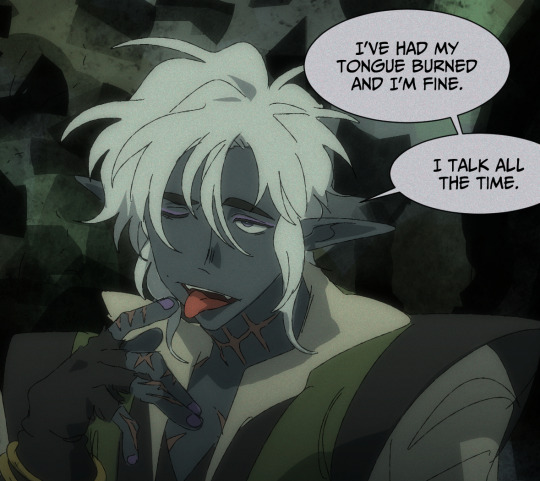
dandelion casually dropping traumatic information while insisting that instead of killing the problem wizard they simply burn his tongue
#dungeons and dragons#dnd#dnd character#dnd oc#dnd art#dandelion treehollow#warlock#drow#all he does is talk... and talk... and talk#they did not actually burn the wizard's tongue it's cool#instead dande used his disguise magic to look like a sexy vampire and promised the vampire larper wizard the dark gift if he behaved#love when dande gets to put on a show because he says wild shit like i hate when people beg for their lives it makes me want to act out#dande had a wild episode#start of the episode: gets to pretend to be a sexy domineering vampire#end of episode: screaming and sobbing in pain after the curse-bomb in his head went off because he broke one of the curse-rules#where he can't sneak away from the party because the last time he did that be betrayed them big time#it's complicated... and delicious#also right before that the paladin was telling him he needs to find god LOL because he's worried about dande's soul#and dande blew him off saying he has plenty of time he's not gonna die (again)#only to then be convinced he's being killed by the curse in his head......#embarrassing.................
498 notes
·
View notes